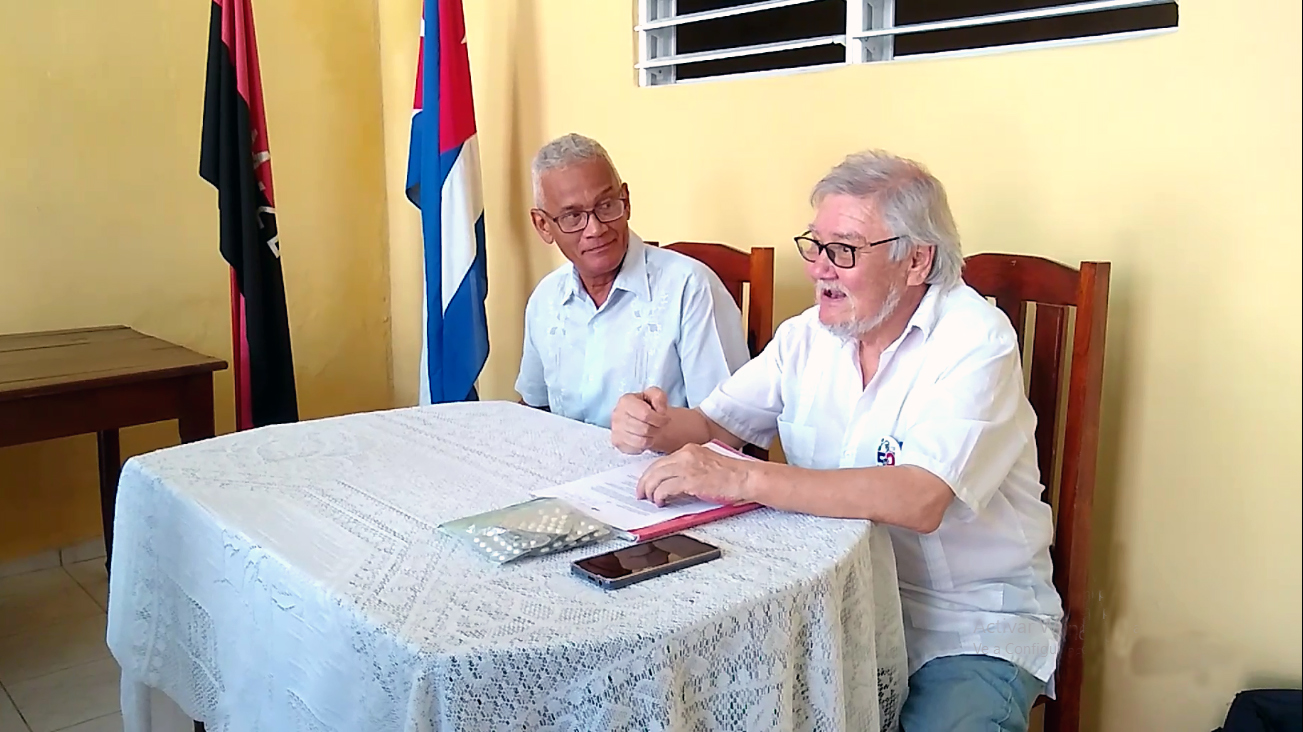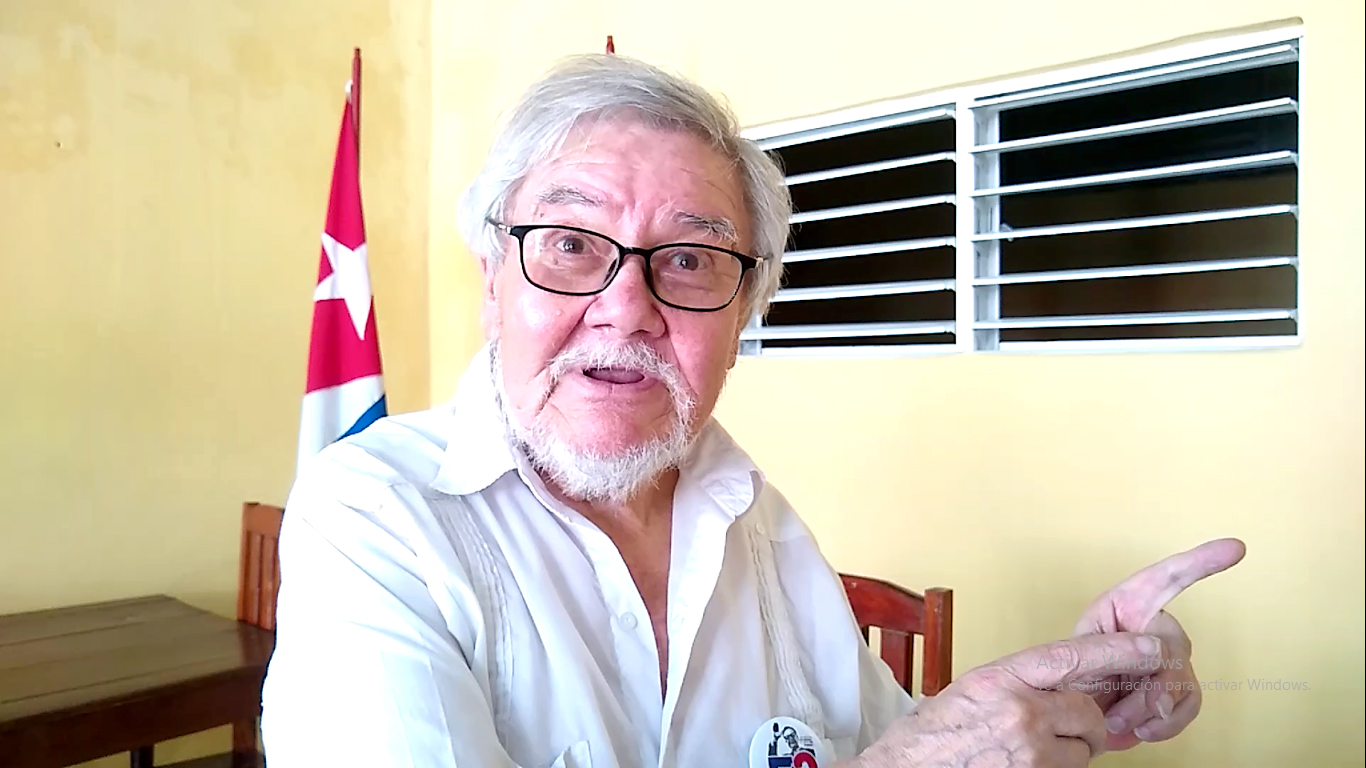
Ignacio Flores was 26 years old when the coup against Chilean President Salvador Allende took place, and after that fatal event on September 11, 1973, he was persecuted and tortured as a revolutionary. Since then, he has not stopped fighting for the just causes of his people.
Las Tunas, Cuba.- He spoke about this in a meeting with members of the Union of Historians of Cuba in Las Tunas. His powerful testimony of that event that shook Latin America made those present relive the tragic death of President Allende in defense of democracy.
Almost 50 years have passed and he has never lost his strength, his hope, and he is not resting in the struggle for a better country like Cuba, which, as he said, continues to be for him and many others a light for the dispossessed.
 "The greatest lesson of those events that I witnessed in my flesh is one that we have not yet been able to fulfill, such as the number of political parties that existed in the Allende government and those that exist today. We have not achieved a unity of criteria that allows for different opinions, even if there is no single party.
"The greatest lesson of those events that I witnessed in my flesh is one that we have not yet been able to fulfill, such as the number of political parties that existed in the Allende government and those that exist today. We have not achieved a unity of criteria that allows for different opinions, even if there is no single party.
"Chile needs to take much faster qualitative steps that will allow us to have a unity of action, of masses, of criteria, to reach common agreements and necessary points such as fair wages, correct family allowances, free and quality education, health services for all Chileans; which in Cuba, for example, are taken for granted and seen as something normal, while we have to pay for everything."
Flores admits that, as an individual, he has no credit with the Chilean state and therefore has no pension, because after the coup he was never allowed to work. After spending more than three years in prison under the Pinochet dictatorship, he went into hiding, was rigorously persecuted, and had to change his real name to the one he is known by today.
"I have visited Cuba 27 times and I can say that I feel like another Cuban, and I don't even need a visa to enter the country, which welcomes me as one of its citizens."
Ignacio Flores arrived in Cuba on July 19 to participate in the Central Act for the National Day of Rebellion, in Santiago de Cuba, and now he returns to his country with an injection of rebellion to continue the fight for a nation like the one he dreamed and Allende died in that September that crowned him with the majority of age as a revolutionary, despite his youth, and until the end of time.





